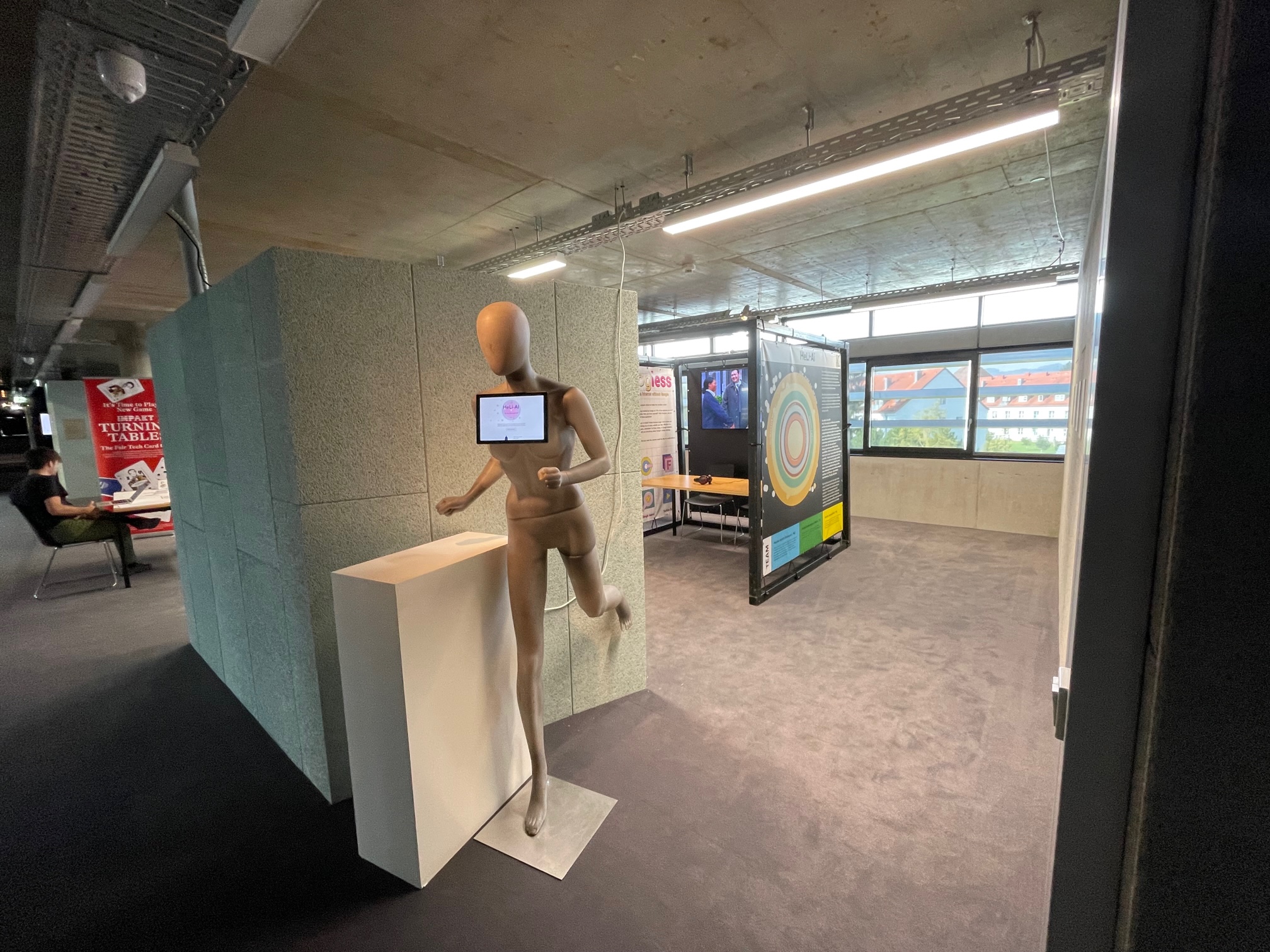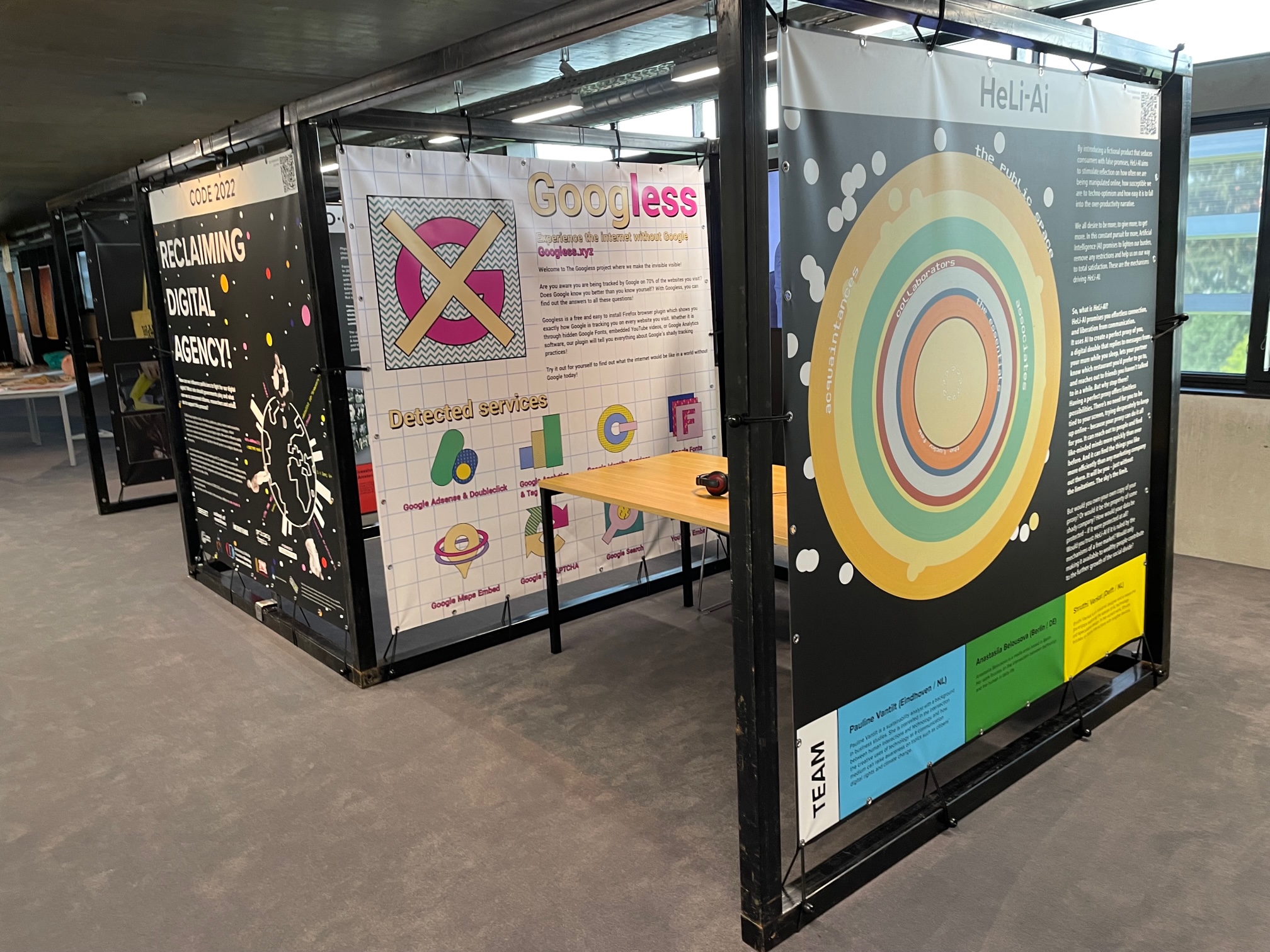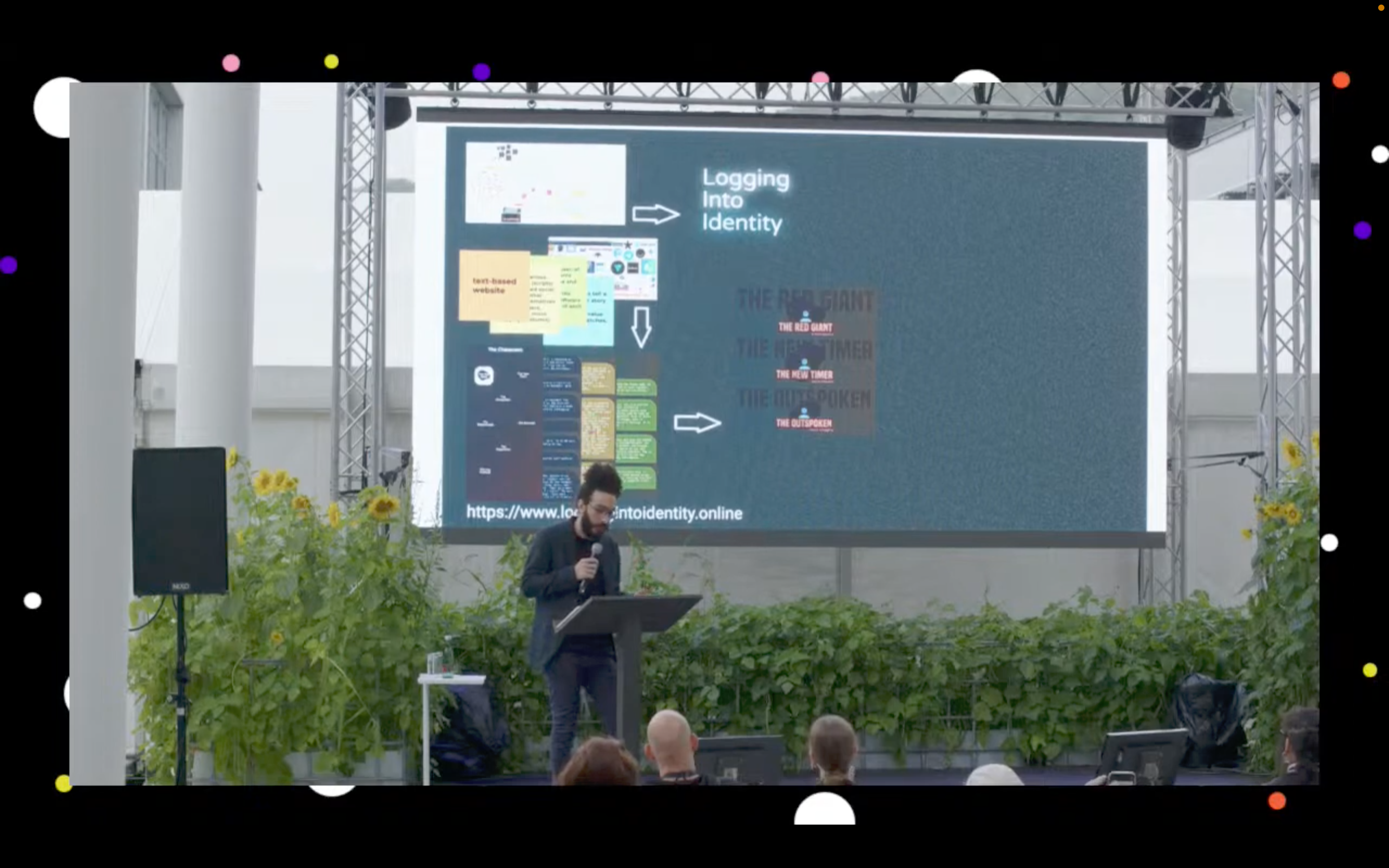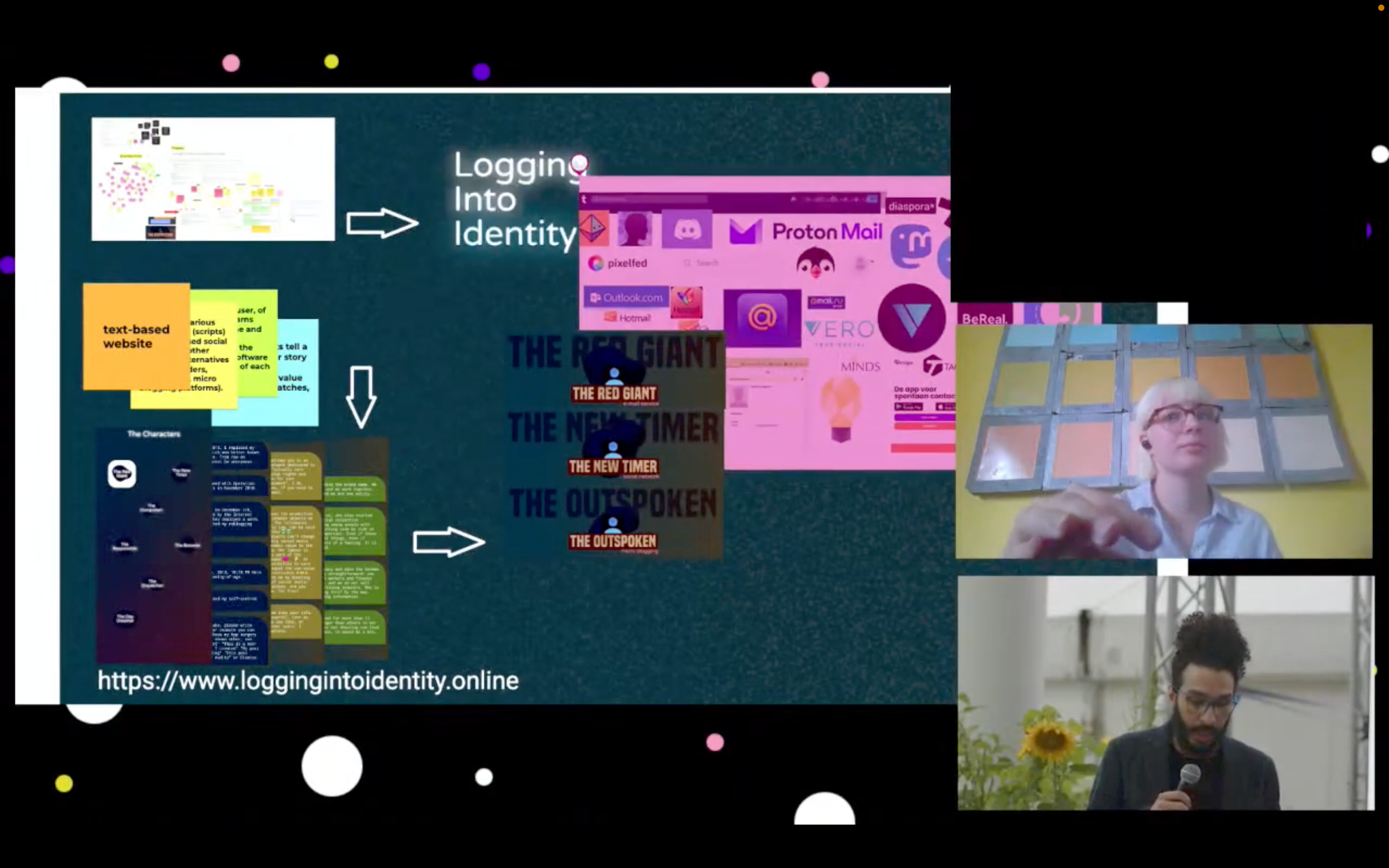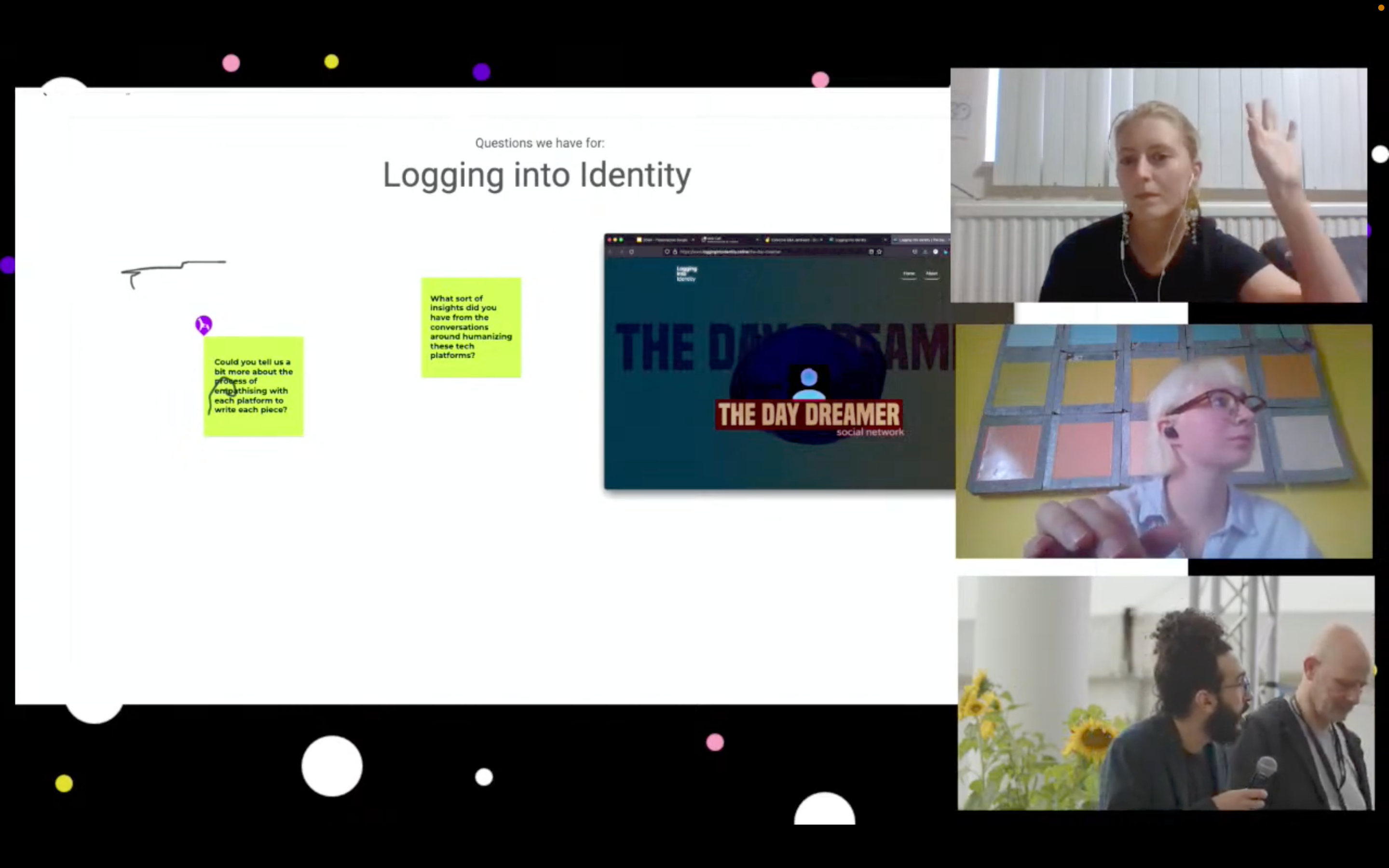CODE Project
CODE: Reclaiming Digital Agency
CODE: Reclaiming Digital Agency is a project that seeks to bring together artists, non-artists, politicians, policymakers and researchers from Germany, Belgium and The Netherlands to engage in critical discussion and devise artistic intervention. CODE does not refer to coding per se, but rather, focuses on the code of digital ethics. CODE is a longform project in which participants work together in small groups over a period of three months to design and create interventions.
These creations follow from ideas developed during a series of events hosted by IMPAKT: workshops, hackathons, presentations, exhibitions and festival participation. While these events are available to the participants to attend in person, the international component of the project means that these events are also hybrid by necessity.
The workshop-style format of the project means that many of the events organized (such as the hackathon) were attended only by the 2022 participants. However, the aim of the project is to create spaces for dialogue between diverse perspectives, and so the participants were also given public platforms to present their creations. One such event is the CODE presentation at Ars Electronica in Linz, Austria, described in more detail below.
CODE 2022 at Ars Electronica
The results of the CODE 2022 project were presented at the Ars Electronica festival in Linz. IMPAKT held a booth area during the festival where the final intervention design concepts were on display with various kinds of documentation (videos, banners, installations, etc). Several groups were selected to also give presentations during a panel session. Each group was tasked with presenting their design intervention, and holding a short Q&A about the project. However, due to the nature of the project not all group members were physically present in Linz, and the session was held hybridly. To further highlight the hybrid interactive, participatory nature of the CODE program the presentations were also given with a twist: the reporting moment on stage was supported with live edits reflecting documentation of the process. Participants that were attending virtually were also able to contribute by joining through video or voice call.
Although there are many takeaways to be had from the CODE project as a whole, the reflections below address this experimental reporting session.
Make it Participatory
Although advertised as a panel discussion/presentation session, the CODE project presentation was far from passive: all the members from the project were very active in this reporting moment. Due to the multiple groups presenting, the time was too limited to have each member of the groups speak. However, all the presenting participants were involved during the presentation. Of each presenting group, 1-2 people presented on stage while the other members of their group made live changes to the slides/notes that were viewable above them on the large LED display screen. These live changes provided documentation into the design process. Furthermore, each group ended their presentation with a Q&A session where members from other groups fed their questions into a Miro board that was visible both in the livestream and on stage in Linz.
Cultivate Collectivity
This session was a moment for the groups to learn about each other’s projects. However, it was also a session open to the public of Ars Electronica, and therefore attendees were also invited to join the conversation through handheld microphones that were passed through the crowd.
Contextualise
The CODE project is all about reclaiming our digital rights: a large part of this speaks to understanding how different questionable dimensions are smoothed over, and hidden from view. Executing this complex presentation construction came with many points of friction. However, rather than being a point against it, this provided an interesting texture to the session. Many of the techniques for collaboration and hybrid thought-processes that underpin the project as a whole were on display– even in its reporting moment. Placing this in the context of Ars Electronica provided a participatory audience that was attuned to this kind of thinking.
